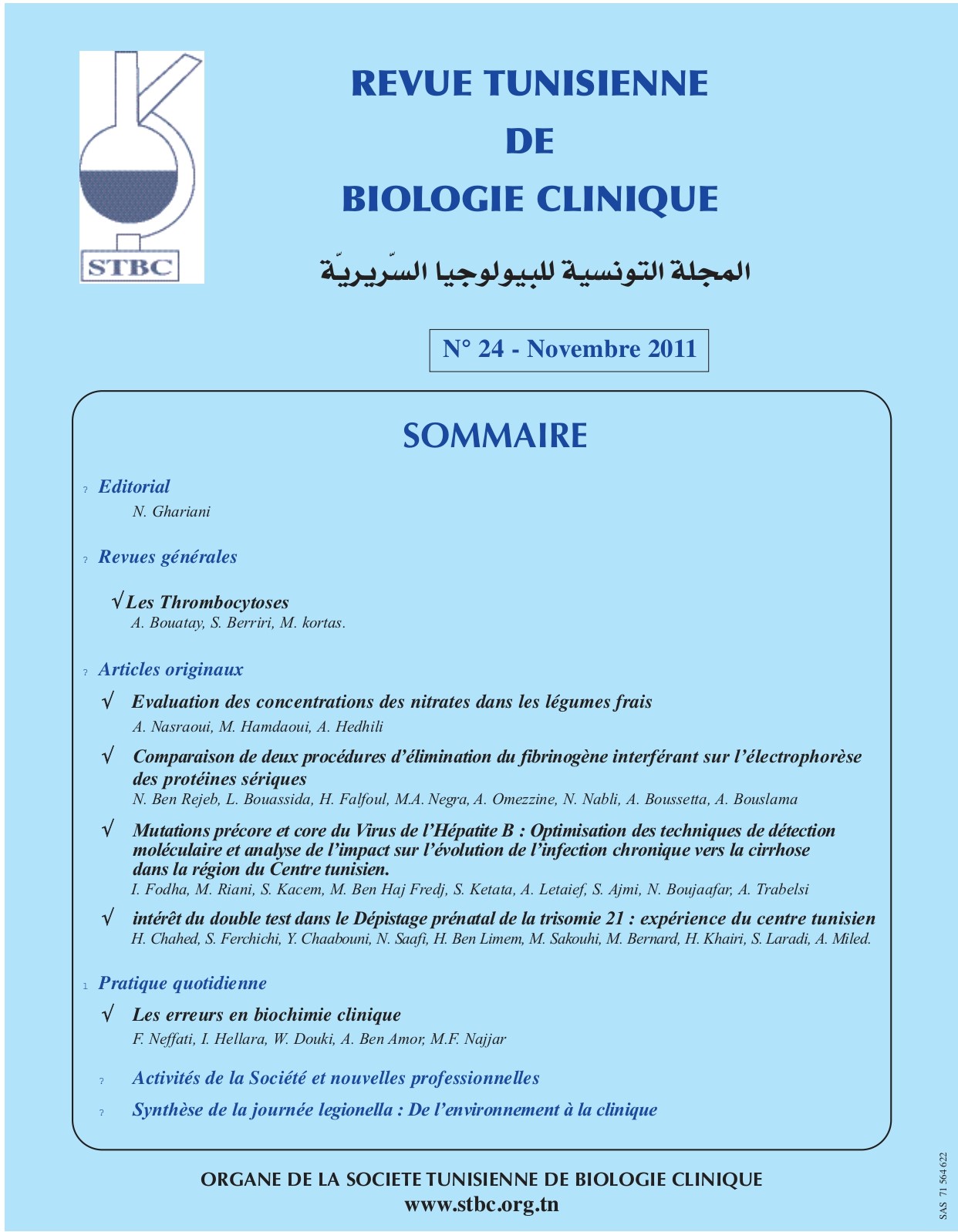Abstract
Objective : To estimate the risk of trisomy 21 using maternal serum markers (AFP and HCG) in the second trimester for all pregnant women. Material and methods : 642 pregnant women (32.88 ± 14 years) were recruited in the maternity units of Sousse and Monastir. We applied a sequential screening that included measurement of nuchal translucency, gestational age, maternal age and the dosage of two serum markers (AFP and HCG) in the second trimester. The software "Prenat interpretive software Maciel" was used to calculate risk. Results : Using the 1/250 cut off for this double test, only one woman has presented a high risk for Down’s syndrome (1/32). The foetal karyotyping was performed and chromosomal abnormality was confirmed. The same sequential test allowed us to detect 3% of neural tube defects. In addition we found 2,9% of cases with decrease of HCG demonstrating diminution of foetal viability. Conclusion : Serum marker testing should be offered to all pregnant women, so invasive tests as amniocentesis will be avoided.

This work is licensed under a Creative Commons Attribution 4.0 International License.
Copyright (c) 2024 Revue Tunisienne de BIOLOGIE CLINIQUE

